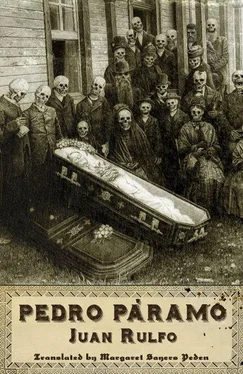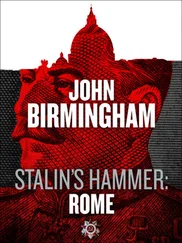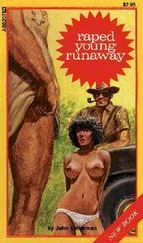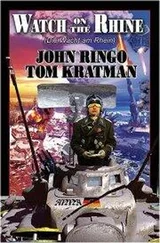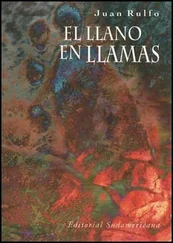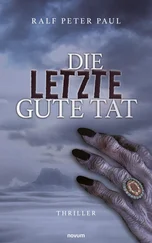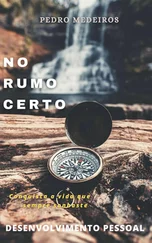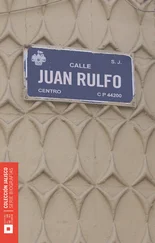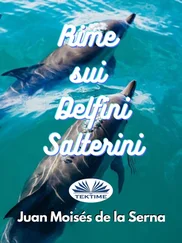As I passed a street corner, I saw a woman wrapped in her rebozo; she disappeared as if she had never existed. I started forward again, peering into the doorless houses. Again the woman in the rebozo crossed in front of me.
“Evening,” she said.
I looked after her. I shouted: “Where will I find dona Eduviges?”
She pointed: “There. The house beside the bridge.”
I took note that her voice had human overtones, that her mouth was filled with teeth and a tongue that worked as she spoke, and that her eyes were the eyes of people who inhabit the earth.
By now it was dark.
She turned to call good night. And though there were no children playing, no doves, no blue-shadowed roof tiles, I felt that the town was alive. And that if I heard only silence, it was because I was not yet accustomed to silence — maybe because my head was still filled with sounds and voices.
Yes, voices. And here, where the air was so rare, I heard them even stronger. They lay heavy inside me. I remembered what my mother had said: “ You will hear me better there. I will be closer to you. You will hear the voice of my memories stronger than the voice of my death — that is, if death ever had a voice.” Mother…. So alive.
How I wished she were here, so I could say, “You were mistaken about the house. You told me the wrong place. You sent me ‘south of nowhere,’ to an abandoned village. Looking for someone who’s no longer alive.”
I found the house by the bridge by following the sound of the river. I lifted my hand to knock, but there was nothing there. My hand met only empty space, as if the wind had blown open the door. A woman stood there. She said, “Come in.” And I went in.
So I stayed in Comala. The man with the burros had gone on his way. Before leaving, he’d said:
“I still have a way to go, yonder where you see that band of hills. My house is there. If you want to come, you will be welcome. For now, if you want to stay here, then stay. You got nothing to lose by taking a look around, you may find someone who’s still among the living.”
I stayed. That was why I had come.
“Where can I find lodging?” I called, almost shouting now.
“Look up dona Eduviges, if she’s still alive. Tell her I sent you.”
“And what’s your name?”
’Abundio,” He called back. But he was too far for me to hear his last name.
I am Eduviges Dyada. Come in.”
It was as if she had been waiting for me. Everything was ready, she said, motioning for me to follow her through a long series of dark, seemingly empty, rooms. But no. As soon as my eyes grew used to the darkness and the thin thread of light following us, I saw shadows looming on either side, and sensed that we were walking down a narrow passageway opened between bulky shapes.
“What do you have here?” I asked.
“Odds and ends,” she said. “My house is chock full of other people’s things. As people went away, they chose my house to store their belongings, but not one of them has ever come back to claim them. The room I kept for you is here at the back. I keep it cleaned out in case anyone comes. So you’re her son?”
“Whose son?” I asked.
“Doloritas’s boy.”
“Yes. But how did you know?”
“She told me you would be coming. Today, in fact. That you would be coming today.”
“Who told you? My mother?”
“Yes. Your mother.”
I did not know what to think. But Eduviges left me no time for thinking.
“This is your room,” she said.
The room had no doors, except for the one we had entered. She lighted the candle, and I could see the room was completely empty.
“There’s no place to sleep,” I said.
“Don’t worry about that. You must be tired from your journey, and weariness makes a good mattress. I’ll fix you up a bed first thing in the morning. You can’t expect me to have things ready on the spur of the moment. A person needs some warning, and I didn’t get word from your mother until just now.”
“My mother?” I said. “My mother is dead.”
“So that was why her voice sounded so weak, like it had to travel a long distance to get here.
Now I understand. And when did she die?”
“A week ago.”
“Poor woman. She must’ve thought I’d forsaken her. We made each other a promise we’d die together. That we would go hand in hand, to lend each other courage on our last journey — in case we had need for something, or ran into trouble. We were the best of friends. Didn’t she ever talk about me?”
“No, never.”
“That’s strange. Of course, we were just girls then. She was barely married. But we loved each other very much. Your mother was so pretty, so, well, sweet, that it made a person happy to love her. You wanted to love her. So, she got a head start on me, eh? Well, you can be sure I’ll catch up with her. No one knows better than I do how far heaven is, but I also know all the shortcuts. The secret is to die, God willing, when you want to, and not when He proposes. Or else to force Him to take you before your time. Forgive me for going on like this, talking to you as if we were old friends, but I do it because you’re like my own son. Yes, I said it a thousand times: ‘Dolores’s boy should have been my son.’ I’ll tell you why sometime. All I want to say now is that I’ll catch up with your mother along one of the roads to eternity.”
I wondered if she were crazy. But by now I wasn’t thinking at all. I felt I was in a faraway world and let myself be pulled along by the current. My body, which felt weaker and weaker, surrendered completely; it had slipped its ties and anyone who wanted could have wrung me out like a rag.
“I’m tired,” I said.
“Come eat something before you sleep. A bite. Anything there is.”
“I will. I’ll come later.”
Water dripping from the roof tiles was forming a hole in the sand of the patio. Plink! plink! and then another plink! as drops struck a bobbing, dancing laurel leaf caught in a crack between the adobe bricks. The storm had passed. Now an intermittent breeze shook the branches of the pomegranate tree, loosing showers of heavy rain, spattering the ground with gleaming drops that dulled as they sank into the earth. The hens, still huddled on their roost, suddenly flapped their wings and strutted out to the patio, heads bobbing, pecking worms unearthed by the rain. As the clouds retreated the sun flashed on the rocks, spread an iridescent sheen, sucked water from the soil, shone on sparkling leaves stirred by the breeze.
“What’s taking you so long in the privy, son?”
“Nothing, mama.”
“If you stay in there much longer, a snake will come and bite you.”
“Yes, mama.”
I was thinking of you, Susana of the green hills. Of when we used to fly kites in the windy season. We could hear the sounds of life from the town below; we were high above on the hill, playing out string to the wind. “Help me, Susana.” And soft hands would tighten on mine. “Let out more string.”
The wind made us laugh; our eyes followed the string running through our fingers after the wind until with a faint pop! it broke, as if it had been snapped by the wings of a bird.
And high overhead, the paper bird would tumble and somersault, trailing its rag tail, until it disappeared into the green earth.
Your lips were moist, as if kissed by the dew.
“I told you, son, come out of the privy now.”
“Yes, mama. I’m coming.”
I was thinking of you. Of the times you were there looking at me with your aquamarine eyes.
He looked up and saw his mother in the doorway.
“What’s taking you so long? What are you doing in there?”
“I’m thinking.”
“Can’t you do it somewhere else? It’s not good for you to stay in the privy so long.
Читать дальше
